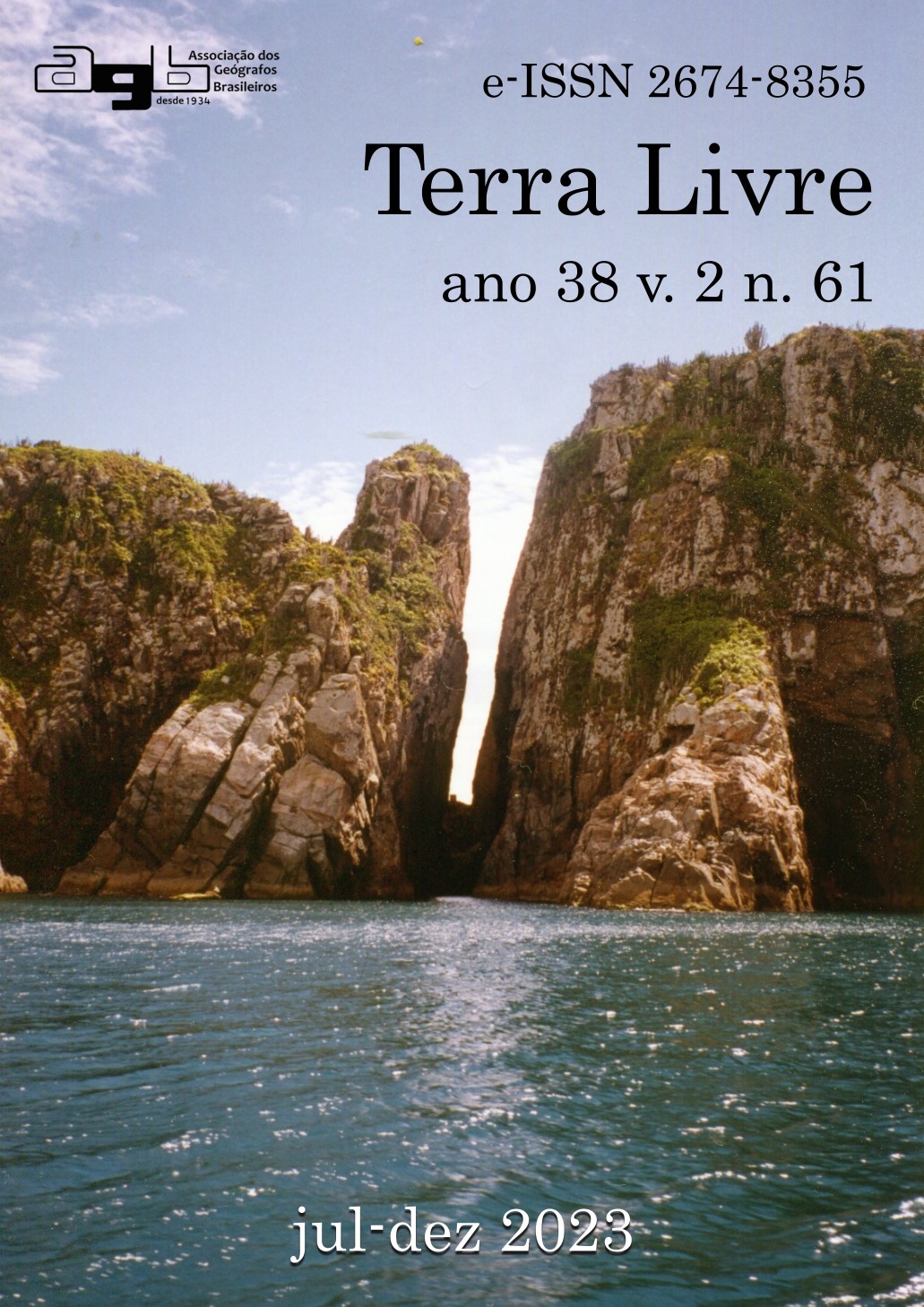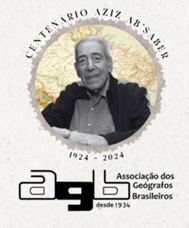A língua brasileira e a configuração do território
as relações de poder entre Nheengatu, o dialeto Caipira e a Língua Portuguesa
DOI:
https://doi.org/10.62516/terra_livre.2023.3392Palavras-chave:
Território, Língua, Poder, Dominação, BrasilResumo
A formação do território brasileiro pode ser analisada a partir de diferentes perspectivas, sendo ainda pouco explorada aquela pautada na língua. A pesquisa desenvolvida aqui justifica-se pela fraca produção de estudos abordando a interseção entre a Geografia e o uso da língua como elemento de dominação na constituição de um território. Com recorte temporalmente situado no período pós-1808, quando os interesses portugueses e o papel do Brasil colônia passaram por transformações significativas, objetiva-se refletir sobre a formação territorial brasileira considerando a língua como um importante recurso de dominação para a constituição e legitimação do território. Trata-se de uma discussão teórica com levantamentos junto a fontes bibliográficas e documentais. Conclui-se que a compreensão das relações de poder entre as línguas na formação do território brasileiro não deve ser dissociada do contexto contemporâneo. A luta pela preservação das línguas marginalizadas e o repúdio ao extermínio dos povos indígenas são atos fundamentais na desconstrução das estruturas que perpetuam a dominação.
Downloads
Referências
GOMES, L. 1808: como uma rainha louca, um príncipe medroso e uma corte corrupta enganaram Napoleão e mudaram a história de Portugal e do Brasil. Rio de Janeiro: Globo Livros, 2014.
HARVEY, D. Condição pós-moderna. São Paulo: Edições Loyola, 1992.
HARVEY, D. O Novo Imperialismo. São Paulo: Loyola, 2004.
HARVEY, D. A Produção Capitalista do Espaço. São Paulo: Annablume, 2005.
MARTINS, J. de S. O senso comum e a vida cotidiana. São Paulo: Contexto, 2020.
MARX, K. Manuscritos econômico-filosóficos. São Paulo: Boitempo Editorial, 2010.
RAFFESTIN, C. Por uma geografia do poder. São Paulo: Ativa, 1980.
SANTOS, M. Metamorfoses do Espaço Habitado. 4ª ed. São Paulo: Hucitec, 1991.
SANTOS, M. Por uma Geografia Nova. 6ª ed. São Paulo: Hucitec, 1996.
SANTOS, M. O Espaço do Cidadão. 13ª ed. São Paulo: Nobel, 2008
SOUZA, M. L. de; SPOSITO, M. E. B.; CARLOS, A. F. A produção do espaço urbano. São Paulo: Contexto, 2020.
Downloads
Publicado
Como Citar
Edição
Seção
Licença
Copyright (c) 2024 Osmar Fabiano de SOUZA FILHO, Léia Aparecida Veiga

Este trabalho está licenciado sob uma licença Creative Commons Attribution-NonCommercial-ShareAlike 4.0 International License.
Esta Revista está licenciado sob uma licença 
Os Direitos Autorais dos artigos publicados na Terra Livre pertencem ao(s) seu(s) respectivo(s) autor(es), com os direitos de primeira publicação cedidos à Terra Livre.
Os artigos publicados são de acesso público, de uso gratuito, com atribuição de autoria obrigatória, para aplicações de finalidade educacional e não-comercial, de acordo com o modelo de licenciamento Creative Commons 3.0 adotado pela revista.

A Terra Livre está licenciada sob uma licença Creative Commons Atribuição-NãoComercial-CompartilhaIgual 3.0 Não Adaptada.
Você é livre para:
- Compartilhar — copie e redistribua o material em qualquer meio ou formato
- Adaptar — remixar, transformar e construir sobre o material
- O licenciante não pode revogar essas liberdades, desde que você siga os termos da licença.
Nos seguintes termos:
- Atribuição — Você deve dar o crédito apropriado , fornecer um link para a licença e indicar se as alterações foram feitas . Você pode fazê-lo de qualquer maneira razoável, mas não de qualquer forma que sugira que o licenciante endossa você ou seu uso.
- Não Comercial — Você não pode usar o material para fins comerciais .
- ShareAlike — Se você remixar, transformar ou construir sobre o material, você deve distribuir suas contribuições sob a mesma licença que o original.
- Sem restrições adicionais — Você não pode aplicar termos legais ou medidas tecnológicas que restrinjam legalmente outras pessoas de fazer qualquer coisa que a licença permita.












